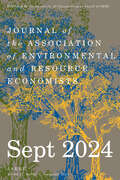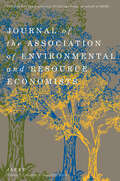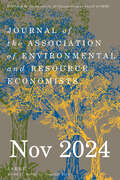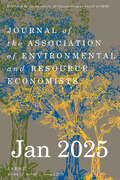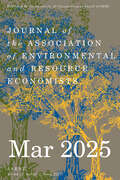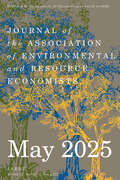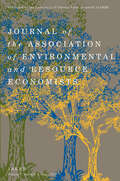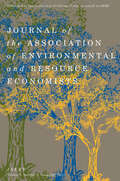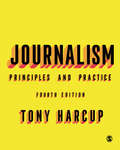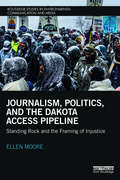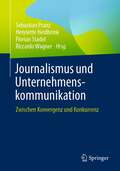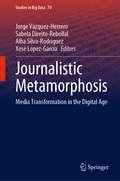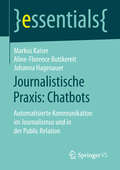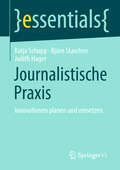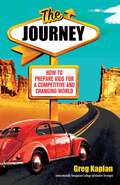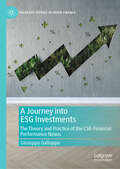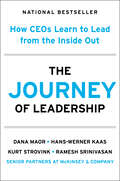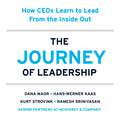- Table View
- List View
Journal of the Association of Environmental and Resource Economists, volume 11 number 5 (September 2024)
by Journal of the Association of Environmental and Resource EconomistsThis is volume 11 issue 5 of Journal of the Association of Environmental and Resource Economists. As an official research journal of the Association of Environmental and Resource Economists, JAERE publishes papers that are devoted to environmental and natural resource issues. The journal's principal mission is to provide a forum for the scholarly exchange of ideas in the intersection of human behavior and the natural environment. Focusing on original, full-length research papers that offer substantial new insights for scholars of environmental and resource economics, JAERE presents a range of articles that are relevant for public policy, using approaches that are theoretical, empirical, or both.
Journal of the Association of Environmental and Resource Economists, volume 11 number 6 (November 2024)
by Journal of the Association of Environmental and Resource EconomistsThis is volume 11 issue 6 of Journal of the Association of Environmental and Resource Economists. As an official research journal of the Association of Environmental and Resource Economists, JAERE publishes papers that are devoted to environmental and natural resource issues. The journal's principal mission is to provide a forum for the scholarly exchange of ideas in the intersection of human behavior and the natural environment. Focusing on original, full-length research papers that offer substantial new insights for scholars of environmental and resource economics, JAERE presents a range of articles that are relevant for public policy, using approaches that are theoretical, empirical, or both.
Journal of the Association of Environmental and Resource Economists, volume 11 number S1 (November 2024)
by Journal of the Association of Environmental and Resource EconomistsThis is volume 11 issue S1 of Journal of the Association of Environmental and Resource Economists. As an official research journal of the Association of Environmental and Resource Economists, JAERE publishes papers that are devoted to environmental and natural resource issues. The journal's principal mission is to provide a forum for the scholarly exchange of ideas in the intersection of human behavior and the natural environment. Focusing on original, full-length research papers that offer substantial new insights for scholars of environmental and resource economics, JAERE presents a range of articles that are relevant for public policy, using approaches that are theoretical, empirical, or both.
Journal of the Association of Environmental and Resource Economists, volume 12 number 1 (January 2025)
by Journal of the Association of Environmental and Resource EconomistsThis is volume 12 issue 1 of Journal of the Association of Environmental and Resource Economists. As an official research journal of the Association of Environmental and Resource Economists, JAERE publishes papers that are devoted to environmental and natural resource issues. The journal's principal mission is to provide a forum for the scholarly exchange of ideas in the intersection of human behavior and the natural environment. Focusing on original, full-length research papers that offer substantial new insights for scholars of environmental and resource economics, JAERE presents a range of articles that are relevant for public policy, using approaches that are theoretical, empirical, or both.
Journal of the Association of Environmental and Resource Economists, volume 12 number 2 (March 2025)
by Journal of the Association of Environmental and Resource EconomistsThis is volume 12 issue 2 of Journal of the Association of Environmental and Resource Economists. As an official research journal of the Association of Environmental and Resource Economists, JAERE publishes papers that are devoted to environmental and natural resource issues. The journal's principal mission is to provide a forum for the scholarly exchange of ideas in the intersection of human behavior and the natural environment. Focusing on original, full-length research papers that offer substantial new insights for scholars of environmental and resource economics, JAERE presents a range of articles that are relevant for public policy, using approaches that are theoretical, empirical, or both.
Journal of the Association of Environmental and Resource Economists, volume 12 number 3 (May 2025)
by Journal of the Association of Environmental and Resource EconomistsThis is volume 12 issue 3 of Journal of the Association of Environmental and Resource Economists. As an official research journal of the Association of Environmental and Resource Economists, JAERE publishes papers that are devoted to environmental and natural resource issues. The journal's principal mission is to provide a forum for the scholarly exchange of ideas in the intersection of human behavior and the natural environment. Focusing on original, full-length research papers that offer substantial new insights for scholars of environmental and resource economics, JAERE presents a range of articles that are relevant for public policy, using approaches that are theoretical, empirical, or both.
Journal of the Association of Environmental and Resource Economists, volume 7 number 3 (May 2020)
by Journal of the Association of Environmental and Resource EconomistsThis is volume 7 issue 3 of Journal of the Association of Environmental and Resource Economists. As an official research journal of the Association of Environmental and Resource Economists, JAERE publishes papers that are devoted to environmental and natural resource issues. The journal's principal mission is to provide a forum for the scholarly exchange of ideas in the intersection of human behavior and the natural environment. Focusing on original, full-length research papers that offer substantial new insights for scholars of environmental and resource economics, JAERE presents a range of articles that are relevant for public policy, using approaches that are theoretical, empirical, or both.
Journal of the Association of Environmental and Resource Economists, volume 9 number 6 (November 2022)
by Journal of the Association of Environmental and Resource EconomistsThis is volume 9 issue 6 of Journal of the Association of Environmental and Resource Economists. As an official research journal of the Association of Environmental and Resource Economists, JAERE publishes papers that are devoted to environmental and natural resource issues. The journal's principal mission is to provide a forum for the scholarly exchange of ideas in the intersection of human behavior and the natural environment. Focusing on original, full-length research papers that offer substantial new insights for scholars of environmental and resource economics, JAERE presents a range of articles that are relevant for public policy, using approaches that are theoretical, empirical, or both.
Journalism: Principles and Practice
by Tony Harcup"A classic text of journalism education that goes beyond the basics to ask the questions that anyone thinking of becoming a journalist really needs to consider. An ethical, entertaining and enduring read - highly recommended." - Michelle Stanistreet, General Secretary, National Union of Journalists This is the one book you need to guide you through university and into your career in journalism. It features stories and tips from a diverse range of journalists, including Ayshah Tull and Cathy Newman of Channel 4 News; Emma Youle of HuffPost; Andrew Norfolk of the Times; and the Mirror’s Nada Farhoud. Covering everything from print to podcasting, it will equip you with the skills and understanding you need to become a successful and ethical journalist. Tony Harcup’s Journalism: Principles and Practice is simply the best guide there is to studying and practising journalism today. "A holistic assessment of what journalism is all about, with plenty of enterprising interpretations of our trade - a word I prefer to ′profession′. I never met a more ′unprofessional′ breed than that of my fellow hacks. This book will, I hope, lead our successors both to question and rebel more than we have." - Jon Snow, Channel 4 News
Journalism: Principles and Practice
by Tony Harcup"A classic text of journalism education that goes beyond the basics to ask the questions that anyone thinking of becoming a journalist really needs to consider. An ethical, entertaining and enduring read - highly recommended." - Michelle Stanistreet, General Secretary, National Union of Journalists This is the one book you need to guide you through university and into your career in journalism. It features stories and tips from a diverse range of journalists, including Ayshah Tull and Cathy Newman of Channel 4 News; Emma Youle of HuffPost; Andrew Norfolk of the Times; and the Mirror’s Nada Farhoud. Covering everything from print to podcasting, it will equip you with the skills and understanding you need to become a successful and ethical journalist. Tony Harcup’s Journalism: Principles and Practice is simply the best guide there is to studying and practising journalism today. "A holistic assessment of what journalism is all about, with plenty of enterprising interpretations of our trade - a word I prefer to ′profession′. I never met a more ′unprofessional′ breed than that of my fellow hacks. This book will, I hope, lead our successors both to question and rebel more than we have." - Jon Snow, Channel 4 News
Journalism in the Age of Virtual Reality: How Experiential Media Are Transforming News
by John PavlikWith the advent of the internet and handheld or wearable media systems that plunge the user into 360º video, augmented—or virtual reality—technology is changing how stories are told and created. In this book, John V. Pavlik argues that a new form of mediated communication has emerged: experiential news. Experiential media delivers not just news stories but also news experiences, in which the consumer engages news as a participant or virtual eyewitness in immersive, multisensory, and interactive narratives.Pavlik describes and analyzes new tools and approaches that allow journalists to tell stories that go beyond text and image. He delves into developing forms such as virtual reality, haptic technologies, interactive documentaries, and drone media, presenting the principles of how to design and frame a story using these techniques. Pavlik warns that although experiential news can heighten user engagement and increase understanding, it may also fuel the transformation of fake news into artificial realities, and he discusses the standards of ethics and accuracy needed to build public trust in journalism in the age of virtual reality. Journalism in the Age of Virtual Reality offers important lessons for practitioners seeking to produce quality experiential news and those interested in the ethical considerations that experiential media raise for journalism and the public.
Journalism, Politics, and the Dakota Access Pipeline: Standing Rock and the Framing of Injustice (Routledge Studies in Environmental Communication and Media)
by Ellen MooreThis book explores tensions surrounding news media coverage of Indigenous environmental justice issues, identifying them as a fruitful lens through which to examine the political economy of journalism, American history, human rights, and contemporary U.S. politics. The book begins by evaluating contemporary American journalism through the lens of "deep media", focusing especially on the relationship between the drive for profit, professional journalism, and coverage of environmental justice issues. It then presents the results of a framing analysis of the Standing Rock movement (#NODAPL) coverage by news outlets in the USA and Canada. These findings are complemented by interviews with the Standing Rock Sioux Tribe, whose members provided their perspectives on the media and the pipeline. The discussion expands by considering the findings in light of current U.S. politics, including a Trump presidency that employs "law and order" rhetoric regarding people of color and that often subjects environmental issues to an economic "cost-benefit" analysis. The book concludes by considering the role of social media in the era of "Big Oil" and growing Indigenous resistance and power. Examining the complex interplay between social media, traditional journalism, and environmental justice issues, Journalism, Politics, and the Dakota Access Pipeline: Standing Rock and the Framing of Injustice will be of great interest to students and scholars of environmental communication, critical political economy, and journalism studies more broadly.
Journalismus und Unternehmenskommunikation: Zwischen Konvergenz und Konkurrenz
by Sebastian Pranz Henriette Heidbrink Florian Stadel Riccardo WagnerObwohl sich Journalismus und Unternehmenskommunikation in Funktion und Selbstverständnis immer noch deutlich voneinander unterscheiden, hat die digitale Transformation für eine zunehmende Konvergenz beider Berufsfelder gesorgt. Die Frage, wie und unter welchen Voraussetzungen Öffentlichkeit erzeugt wird, stellt sich angesichts eines tiefgreifenden Medienwandels mit zunehmender Dringlichkeit. Dieses Buch beschreibt das Spannungsverhältnis zwischen beiden Feldern mit Blick auf technologische, ökonomische und praktische Aspekte. Expert*innen aus Journalismus, Unternehmen und Forschung erläutern – wissenschaftlich fundiert und anhand von zahlreichen Praxisbeispielen –, wie sich das neue Miteinander gestaltet: von den jeweils berufsspezifischen Umbrüchen über Wissensvermittlung, -transfer und Netzwerkarbeit bis hin zu neuen Businessmodellen und -strategien für beide Berufsfelder.Ein Buch für Journalist*innen, journalistische Unternehmer*innen, Kommunikationsverantwortliche in Unternehmen, Studierende und praxisorientierte Wissenschaftler*innen.Mit Beiträgen von:• Dr. Matthias Albisser, Hochschule Luzern• Prof. Dr. Christopher Buschow, Bauhaus-Universität Weimar• Prof. Dr. Matthias Degen, Westfälische Hochschule• Prof. Dr. Alexander Godulla, Universität Leipzig• M.A. Benjamin Held, Westfälische Hochschule• Dr. Constanze Jecker, Hochschule Luzern• Prof. Dr. Florian Meißner, Hochschule Macromedia• M.A. Megan Neumann, Ostfalia Hochschule für angewandte Wissenschaften• Prof. Dr. Marc-Christian Ollrog, Ostfalia Hochschule für angewandte Wissenschaften• Rosanna Planer, Universität Leipzig• Prof. Dr. Lars Rademacher, Hochschule Darmstadt• Prof. Dr. Christoph Raetzsch, School of Communication and Culture• Dr. Jonas Schützeneder, Katholische Universität Eichstätt-Ingolstadt• Prof. Dr. René Seidenglanz, Quadriga Hochschule• M.A. Hauke Serger, Bauhaus-Universität Weimar• Dr. Klaus Spachmann, Universität Hohenheim• B.A. Karoline Steinbock, Ostfalia Hochschule für angewandte Wissenschaften• M.A. Maike Suhr, Bauhaus-Universität Weimar• Dr. Daniel Vogel, fög – Forschungszentrum Öffentlichkeit und Gesellschaft• Prof. Dr. Stefan Weinacht, Westfälische Hochschule• Prof. Dr. Cornelia Wolf, Universität Leipzig
Journalistic Metamorphosis: Media Transformation in the Digital Age (Studies in Big Data #70)
by Jorge Vázquez-Herrero Sabela Direito-Rebollal Alba Silva-Rodríguez Xosé López-GarcíaThis book aims to reflect how journalism has changed in recent years through different perspectives concerning the impact of technology, the reconfiguration of the media ecosystem, the transformation of business models, production and profession, as well as the influence of digital storytelling, mobile devices and participation within the context of glocal information.Journalism innovation implies modifications in techniques, technologies, processes, languages, formats and devices intended to enhance the production and consumption of the journalistic information.This book becomes an interesting resource for researchers and professionals working in news media to identify the best practices and discover new types of information flows in a rapidly changing news media landscape.
Journalistische Praxis: Automatisierte Kommunikation im Journalismus und in der Public Relation (essentials)
by Markus Kaiser Aline-Florence Buttkereit Johanna HagenauerChatbots werden im Journalismus und in der Unternehmenskommunikation immer häufiger eingesetzt, um mit den Lesern bzw. Kunden auf der Website, in Apps oder in Social-Media-Kanälen zu kommunizieren. In diesem essential wird aufgezeigt, wann sich der Einsatz von Chatbots in der digitalen Kommunikation eignet und wie Chatbots konzipiert und entwickelt werden. Und worauf zu achten ist, dass die Leser bzw. Kunden Chatbots statt menschlicher Mitarbeiter akzeptieren und sich nicht frustriert abwenden. Außerdem wird ein Ausblick gegeben, wie sich Chatbots durch Machine Learning bzw. Künstliche Intelligenz weiterentwickeln könnten.
Journalistische Praxis: Innovationen planen und umsetzen (essentials)
by Katja Schupp Björn Staschen Judith HagerDer Band beleuchtet, wie Journalist*innen im digitalen, non-linearen Zeitalter ihren demokratischen Auftrag erfüllen können – kreativ, innovativ und zukunftsfähig. Dieses Essential möchte dazu inspirieren journalistische Produkte, Prozesse und Dienstleistungen so zu verändern, dass sie aktuellen Bedürfnissen entsprechen und echten Mehrwert schaffen. Mit innovativen Beispielen und praktischen Methoden bietet es Impulse, die Herausforderungen der Medienlandschaft als Chance zu nutzen. Für alle, die überzeugt sind, dass guter Journalismus der Schlüssel zu einer robusten Demokratie ist.
Journalistische Praxis: Texten zu jedem Thema (essentials)
by Gary HuckDieses Buch ist ein auf das Wesentliche reduziertes Einstiegswerk für professionelles Schreiben. Sie erhalten Grundwissen darüber, wie Sie ein Thema für Ihren Text finden, wie Sie dieses Thema in einer Recherche vertiefen und anschließend die Recherche als Text umsetzen. Neben theoretischem Wissen enthält dieses Buch auch Beispiele aus der Praxis, die die theoretischen Inhalte veranschaulichen. Dieses Buch soll vor allem Einsteigern im Bereich Texten helfen, schnell grundlegende Fähigkeiten aufzubauen, um aussagekräftige Texte zu verfassen. Es war die Intention des Buches, einen Leitfaden für Volontäre und Trainees aus den Bereichen Medien und Kommunikation zu schaffen, durch den man innerhalb eines Nachmittags die Grundlagen des Textens lernen kann. Auch soll dieses Buch seine Leser dazu anregen, ihr Wissen konsequent praktisch anzuwenden und sich weiter mit der Materie Texten auseinanderzusetzen.
The Journey: How to Prepare Kids for a Competitive and Changing World
by Greg KaplanRooted in humorous stories distilled with bits of sagely honest advice, The Journey goes beyond the well-chronicled college admissions madness and cuts to the core of parental angst with concrete suggestions for preparing children for a competitive and rapidly changing world.Young people face an increasing medley of challenges as they pursue higher education—rising tuition costs, daunting prospective student debt, and a talented and competitive applicant pool. After a decade of preparing students for the ever more difficult admissions process, college counselor Greg Kaplan wishes parents would stop thinking, &“What should I do to get my kid into a good college?&” and instead ask: &“How can I best prepare my child for what comes next?&” Having practiced law and worked in investment banking early in his career before pivoting to working with students, parents, and educators, Kaplan knows what the world—and its population of college admissions officers—is looking for in today&’s youth and tomorrow's leaders: Grit. Leadership. Passion.Emphasizing these fundamental tenets of successful adulthood, The Journey paints a realistic picture of the lack of preparedness among today&’s youth. Using stories of parents and students who have struggled and succeeded, Kaplan pushes students to consider: What do you want to get out of your college and work career? How can you jumpstart your journey into the real world? He asks parents: Are you preparing your children to attain a life of health, happiness, and financial independence?Rooted in humorous stories sprinkled with bits of brutally honest advice, The Journey goes beyond the well-chronicled college admissions madness and cuts to the core of parental angst. This is the definitive guide in preparing children for a competitive and rapidly changing world.
The Journey
by Janet Kidd StewartPlanning for retirement can be as complicated as it is daunting, especially if you don't have the wisdom of a financial planner at your side. It is with that in mind that Janet Kidd Stewart writes the weekly Chicago Tribune column "The Journey," which provides intelligent, straightforward, and personalized tips on how to best save for retirement.Now the best of Janet Kidd Stewart's sage advice has been conveniently collected in The Journey: Questions and Answers About Retirement Saving, Investing and Health Care. Taken from her weekly Chicago Tribune columns, this book can serve as an excellent primer for retirement planning regardless of age or income. The advice is up-to-date and plainly put, allowing the average person to better understand the ins and outs of Social Security, Medicare, annuities, mortgages, and wills, as well as pensions, IRAs, and 401(k)s.Written in the friendly and insightful tone that has made Stewart's columns a popular feature, The Journey takes readers' questions about personal and specific situations and details thoughtful, practical answers that can be applicable to many individuals in similar scenarios. Stewart peppers in additional counsel on a variety of topics to supplement these questions, making this book a comprehensive but quick read for anyone curious about whether their future is secure.
Journey: How the Meeting of Past, Present, and Future Affects Consumer Thinking
by Gerald Zaltman Lindsay ZaltmanHow we frame time and unfolding events-the essence of "journey" as a deep metaphor-influences such consumer decisions as home buying, financial planning, charitable giving, health care, snacks, vacations, and many more. This chapter looks at what journeys reveal about consumers.
A Journey into Accounting Thought
by Louis GoldbergThis book explores the role of accountants in business and society. The final work of Louis Goldberg, Professor Emeritus at the University of Melbourne, it aims to raise awareness of the existence and importance of fundamental issues that are often ignored or by-passed in contemporary discussion of accounting. The sixteen chapters assess exactly wh
A Journey into ESG Investments: The Theory and Practice of the CSR-Financial Performance Nexus (Palgrave Studies in Impact Finance)
by Giuseppe GalloppoThis book deals with climate finance and presents a balance between the theoretical framework—as drawn by the most widely cited practitioner-oriented and academic journals in environmental management—and experimental finance. Does sustainability work eventually? This book explores the data from empirical analysis to address this question. The book investigates the effectiveness of Corporate Social Responsibility and its empirical verification by analyzing the correlation between firm-specific ESG characteristics and financial performance, and will be of interest to academics, researchers, and practitioners of sustainable finance and climate finance.
The Journey Never Ends: Technology's Role in Helping Perfect Health Care Outcomes (HIMSS Book Series)
by David Garets Claire McCarthy GaretsIf your health care organization is typical, you were successful in getting your electronic medical record (EMR) system installed on time and within budget. You declared victory and collected some money from meaningful use. But very quickly, you realized you were not getting the expected return on your investment. So you started the "optimization"
The Journey of Leadership: How CEOs Learn to Lead from the Inside Out
by Ramesh Srinivasan Dana Maor Hans-Werner Kaas Kurt StrovinkWhen the pressure is on, many of the world&’s top CEOs turn to McKinsey & Company to reinvent themselves and their organizations. The Journey of Leadership brings the experience of one of the world&’s most influential consulting firms right to your fingertips.This book is the first-ever explanation of McKinsey&’s step-by-step approach to transforming leaders both professionally and personally, including revealing lessons from its legendary CEO leadership program, The Bower Forum, which has counseled more than five hundred global CEOs over the past decade. It is a journey that helps leaders hone the psychological, emotional, and, ultimately, human attributes that result in success in today&’s most demanding top job. Packed with insightful and never-before-heard reflections from leaders, including Ed Bastian (CEO of Delta Air Lines), Makoto Uchida (CEO of Nissan Motor Corporation), Mark Fields (former CEO of Ford Motor Company), Reeta Roy (CEO of Mastercard Foundation), and Stéphane Bancel (CEO of Moderna), you will learn how to: Assess your personal leadership approach and style objectively. Discover your true mandate as a leader.Develop creative, actionable ways to reinvigorate both yourself and your organization.Create a personal commitment plan to inspire your team and cement your legacy.The Journey of Leadership is an invaluable resource for anyone running or hoping to run an organization in today&’s ever-more-complex world.
The Journey of Leadership: How CEOs Learn to Lead from the Inside Out
by Ramesh Srinivasan Dana Maor Hans-Werner Kaas Kurt StrovinkWhen the pressure is on, many of the world's top CEOs turn to McKinsey & Company to reinvent themselves and their organizations. The Journey of Leadership brings the experience of one of the world's most influential consulting firms right to your fingertips.This book is the first-ever explanation of McKinsey's step-by-step approach to transforming leaders both professionally and personally, including revealing lessons from its legendary CEO leadership program, The Bower Forum, which has counseled more than five hundred global CEOs over the past decade. It is a journey that helps leaders hone the psychological, emotional, and, ultimately, human attributes that result in success in today's most demanding top job.Packed with insightful and never-before-heard reflections from leaders, including Ed Bastian (CEO of Delta Air Lines), Makoto Uchida (CEO of Nissan Motor Corporation), Mark Fields (former CEO of Ford Motor Company), Reeta Roy (CEO of Mastercard Foundation), and Stéphane Bancel (CEO of Moderna), you will learn how to:* Assess your personal leadership approach and style objectively.* Discover your true mandate as a leader.* Develop creative, actionable ways to reinvigorate both yourself and your organization.* Create a personal commitment plan to inspire your team and cement your legacy.The Journey of Leadership is an invaluable resource for anyone running or hoping to run an organization in today's ever-more-complex world.
